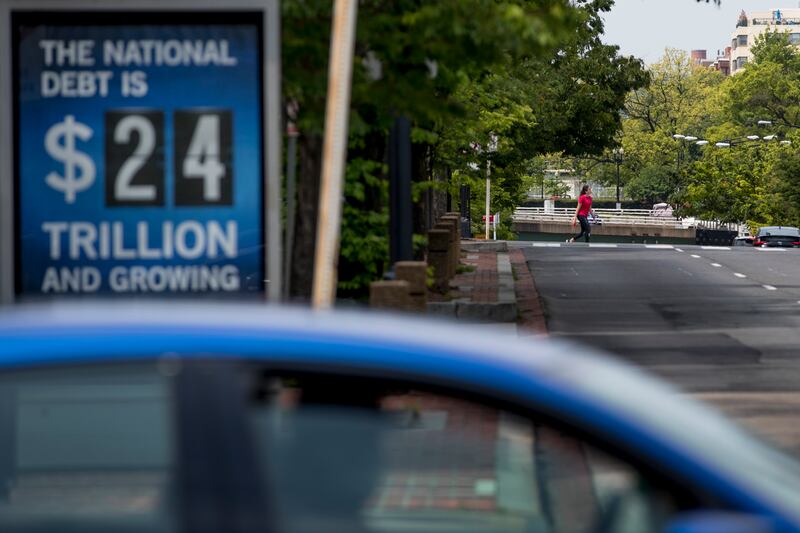Sen. Mitt Romney made an important distinction last week during early debate on whether or how to bail out states whose budgets are suffering in the wake of the COVID-19 pandemic.
“It’s essential that this effort to provide compensation to states not be used to pay back some of the profligacy of states that have excessive pension obligations or excessive spending or excessive, extensive deficits. That’s not what this is designed to do,” Utah’s junior senator said.
Utah is not one of those profligate states. While we can always do better, we currently rank a healthy 16th in per capita state debt, at just a bit over $2,000 per person. Thirty-four states are worse. Connecticut, which ranks last, has more than five times as much debt per person.
We would take issue with Sen. Romney’s reference to “compensation.” Neither Utah nor Connecticut should be getting any sort of bailout.
But the bottom line is clear: Making taxpayers foot the bill for the failed policies of irresponsible politicians would be a double-barreled mistake. First, rewarding bad policymaking is the wrong thing to do. Second, it sets the stage for the same wasteful policies to continue. So, not only would it not solve the current crisis, it would make us less prepared for the next one.
Instead, states need to get their own houses in order by prioritizing spending and enacting reforms that protect public health and create the environment for economic growth.
We should be helping the people who have been most adversely affected by the coronavirus pandemic, not bailing out politicians who have spent years, and even decades, wasting taxpayers’ money without a thought given to the future.
Sen. Mike Lee signed on to a letter to President Donald Trump that makes the case in stark terms. “New York’s rainy day fund is one of the lowest in the nation, and the state owes over $450 billion in unfunded pension and post-employment benefits,” Lee and four of his colleagues wrote. “Other states are in even worse shape. Illinois has already requested a $40 billion bailout, most of which would go to pension and budget shortfalls caused by decades of fiscal mismanagement.”
Enough is enough.
The federal government has already made $500 billion in loans available to state and local governments through the Federal Reserve’s Municipal Liquidity Facility. That’s on top of the more than $600 billion in direct payments Congress has provided to the states for pandemic response and relief (and the nearly $800 billion it doles out annually to states).
“By using their own rainy day and reserve funds, cutting wasteful and duplicative programs, and eliminating regulatory barriers that slow economic growth, states can get through the coronavirus crisis without imposing further burdens on taxpayers or worsening the federal debt.” — Heather Andrews
While some state and local governments might be reluctant to borrow money they’ll have to pay back, it’s important to remember that any aid coming from Washington is already going to be borrowed — the federal government is $25 trillion in debt, and in the midst of running a $3.7 trillion deficit this year alone. Relative to the size of the economy, the national debt is the highest it has been since World War II.
The prudent thing to do is make fiscally responsible decisions at the state level. That means getting rid of wasteful spending and eliminating barriers to the kind of economic growth that is the only dependable pathway back to fiscal solvency.
Comprehensive occupational licensing reform would grow the economy and add millions of dollars to state coffers. Eliminating corporate welfare would save hundreds of millions (and, not incidentally, get states out of the cronyism business, creating a more level playing field for all).
By using their own rainy day and reserve funds, cutting wasteful and duplicative programs, and eliminating regulatory barriers that slow economic growth, states can get through the coronavirus crisis without imposing further burdens on taxpayers or worsening the federal debt.
And they just might come out the other end with a more fiscally responsible attitude to carry into the future.
Heather Andrews is state director of Americans for Prosperity-Utah.

